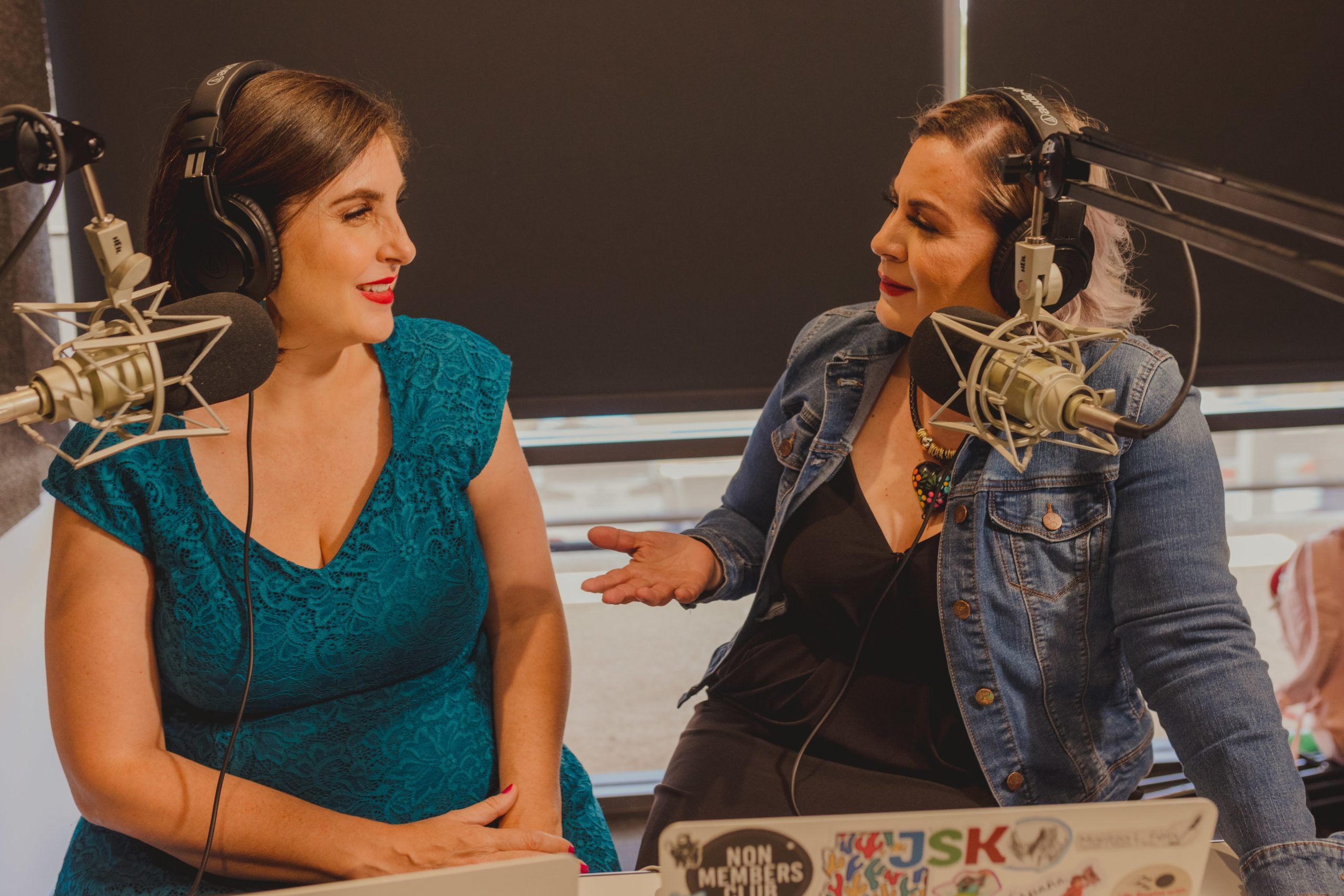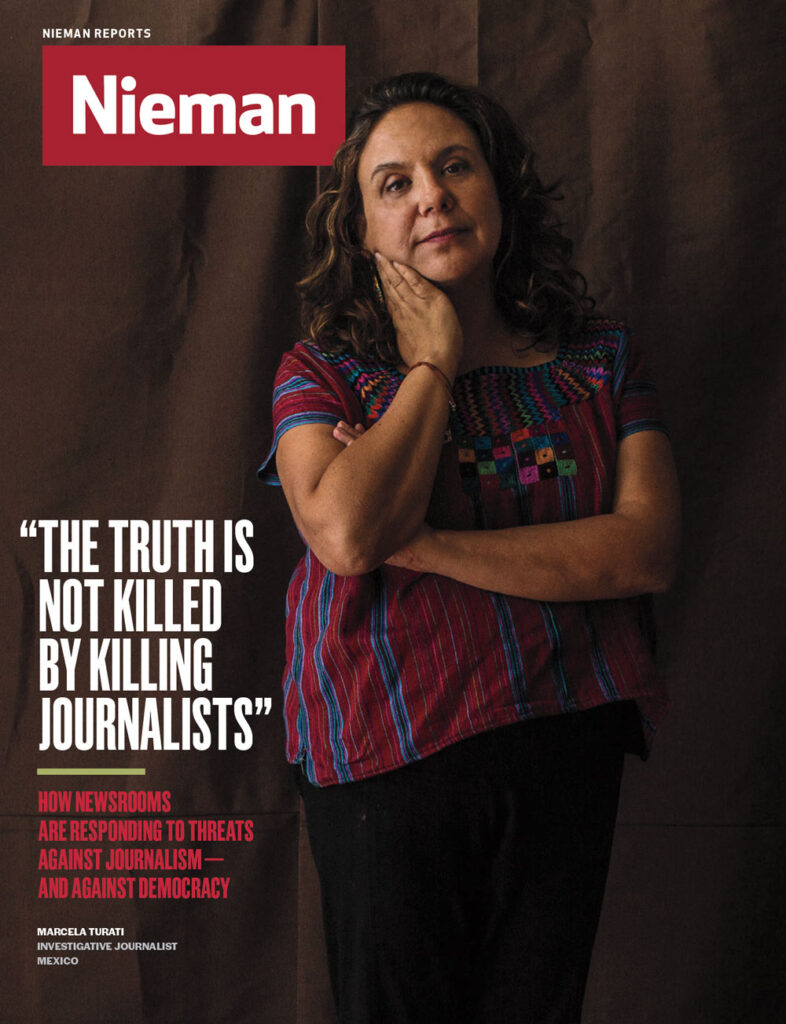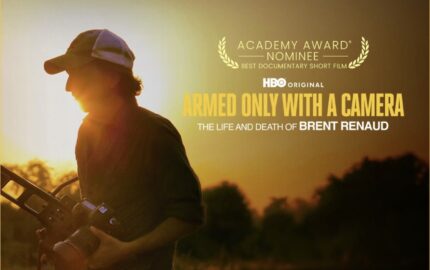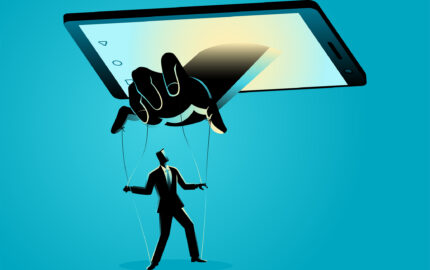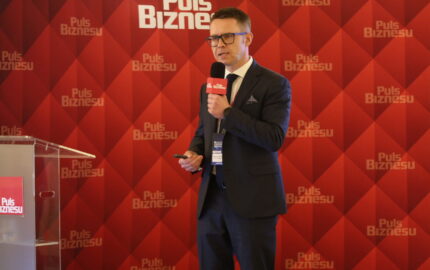Valeria Fernandez, a 2021 visiting fellow, on building a village at a time when the world feels scary and distant
We were barely starting the first season of our Spanish-language podcast to talk about health for immigrant women and non-binary and trans people, when I broke the news to my partner in crime: "I'm pregnant!" Maritza L. Félix was happy for me. The beauty of having a co-producer that is also a mom and your comadre — a trustworthy and intimate friend — is that she gets it.
It was January 2021, Covid-19 vaccines were not yet available in Arizona to us, and this added another layer to our production challenges. Would I feel safe conducting interviews in person? Would we be OK locking ourselves into a studio for hours to record tracks? Maritza was patient and understood the extra anxiety I had because of the pandemic. And we got creative, using Zoom, long microphone poles, and masks — lots of masks.
The gestation of "Comadres al Aire" began amid the pandemic like that, springing from the conversations between our extended families of comadres. As journalists, we drew from the relationships we built over the years to cover the challenges faced by undocumented immigrants in Arizona — one of them, the disparities in access to our healthcare system. Most importantly, we found a place to pour that human part of ourselves so often neglected because of the daily grind of covering the news.
Combined, we have almost 40 years of experience in journalism. We're both immigrants. I'm from Uruguay. She's from Mexico. We both grew our careers in the U.S., writing in Spanish for an immigrant audience — people like us. We also embarked on a cross-over journey to write in English so our work could have an impact on policy change. At least, that's what I thought. But, after a decade of doing that, my heart needed the purpose of journalism to be grounded in community. A type of journalism that doesn't talk about immigrants as "them" because you are them.
We like to say that in Comadres we talk about del vientre al subconsciente — from the womb to the subconscious — and that we are among friends (estamos en confianza). We're reaching people on the internet and over the radio airwaves with Radio Bilingue, reaching those still affected by the digital divide. We've been slowly building a village at a time when the world has felt more scary and distant. The voices that are joining our podcasts — doctors, therapists, mothers, lovers, abuelitas, midwives, and activists — are building a community of mutual aid to change the narratives about our health and confront inequalities. We're gearing up for our next season, slated to launch in early September, and we're not two comadres anymore. We are a village. We listened, and we are putting into action what our community asked for. Showing that change comes when we talk to our communities, not about them.
